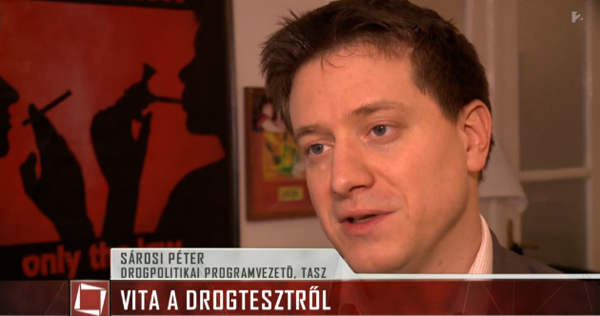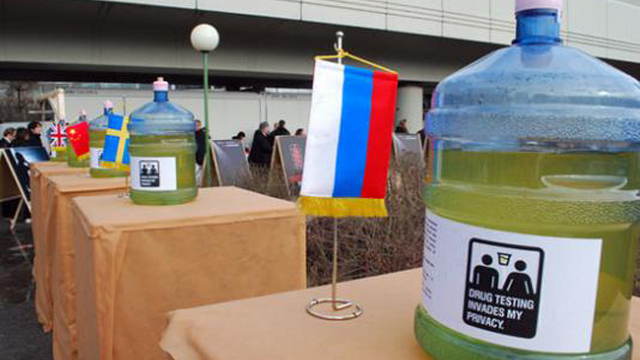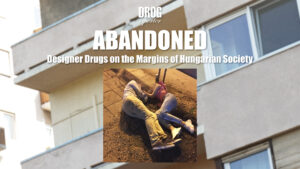A government politician's proposal for mandatory drug testing of teenagers has been rejected due to criticism.
Máté Kocsis, the mayor of District 8 in Budapest, caused public outrage by proposing to introduce mandatory drug testing for all journalists, politicians, and schoolchildren between the ages of 8 and 18. "I am often astounded to read that numerous 'experts' talk about drug policies, when there are many of us who would instead like to hear about anti-drug policies," he wrote late Friday in his Facebook post. The ruling Fidesz party first welcomed the proposal to test teenagers, and announced that they would implement it. A few days later though, under pressure from the media and professionals, they changed their position, and are now only talking about voluntary drug testing for those children and their parents who request it.
There are several problems with mandatory school drug testing – staff at HCLU’s Drugreporter have given a number of interviews to the online, printed and broadcast media, to call public attention to these problems.

TV2 evening news about drug tests
PRIVACY
First, it is unconstitutional in Hungary to test schoolchildren for drug use without the informed consent of their parents. The Fidesz party is in a position to change the constitution itself – they have two-thirds of the parliamentary seats, and have used this power in the past to adopt a constitutional amendment allowing the government to criminalise homeless people. However, it is unlikely that they will amend the constitution for drug testing.
COST-EFFECTIVENESS
Second, school drug testing is not cost-effective compared to other drug prevention interventions. While the Hungarian government spent approximately 200.000 Euros on drug prevention programs in 2013, a massive school drug testing program would cost millions of Euros, with possibly no or negative results. According to scientific studies on the impact of school drug testing, these programs are not effective in reducing drug use or drug-related problems among young people. In recent years, fewer and fewer professional helpers (school psychologists, school social workers, etc) have been available to work with school kids in Hungary due to the financial cuts, and in many schools it is only the police who are running prevention programs, with questionable effectiveness. In a period of financial austerity, decision makers should allocate scarce resources to programs that work!
Watch our short movie on school drug testing!
UNDETECTABLE LEGAL HIGHS
Third, rapid tests cannot detect the new psychoactive substances (so-called 'legal highs') which have become increasingly popular among young people over the past couple of years. The use of these new drugs is much riskier than traditional drugs such as cannabis. If we introduce school drug testing, we push young people to experiment with new substances which are not detectable by drug tests, and therefore put them at risk.
CONSEQUENCES
A teen tests positive – and then what? Are you going to apply a sanction? Exclude them from sporting activities, for example? If you do so, you end up excluding kids, and make them more vulnerable to all social ills, including drug use itself. What really protects young people, is social inclusion, not exclusion. Some supporters of drug testing say they don’t want to punish kids who test positive, but provide them with professional care instead. But: why the hell do you need drug testing, in order to provide help to those young people who are vulnerable to drug abuse? There are much better ways to identify those kids who really need help, for example talking to them and paying them attention.
Mr. Kocsis, the politician who made the proposal, is the same mayor who forced the largest needle and syringe program of Hungary to close down earlier this year (read our story!). His act was criticised by the Commissioner for Fundamental Rights, and this made him very frustrated, causing him to claim that the ombudsman was “under the influence of the drug lobby”. His recent efforts to introduce school drug testing are a clear indication that he intends to continue trying to build his political carrier on rabble-rousing. His real intention is to divert public attention away from the growing corruption scandal surrounding his fellow Fidesz politicians, scandalising people and resulting in a 12 percent dip in government popularity within a few weeks.
The government did not formally denounce Mr. Kocsis’s proposal, but has now decided to introduce voluntary school drug tests, on the request of parents, with confidential results. The Ministry of Justice has been asked to assess the legal feasibility of such drug tests, and prepare a bill to be discussed by parliament. They claim to be worried about the health of young people; however, the fact that the government has failed to provide adequate funding for evidence-based prevention, treatment, and harm-reduction programs casts doubts on the sincerity of their intentions.
Peter Sarosi






